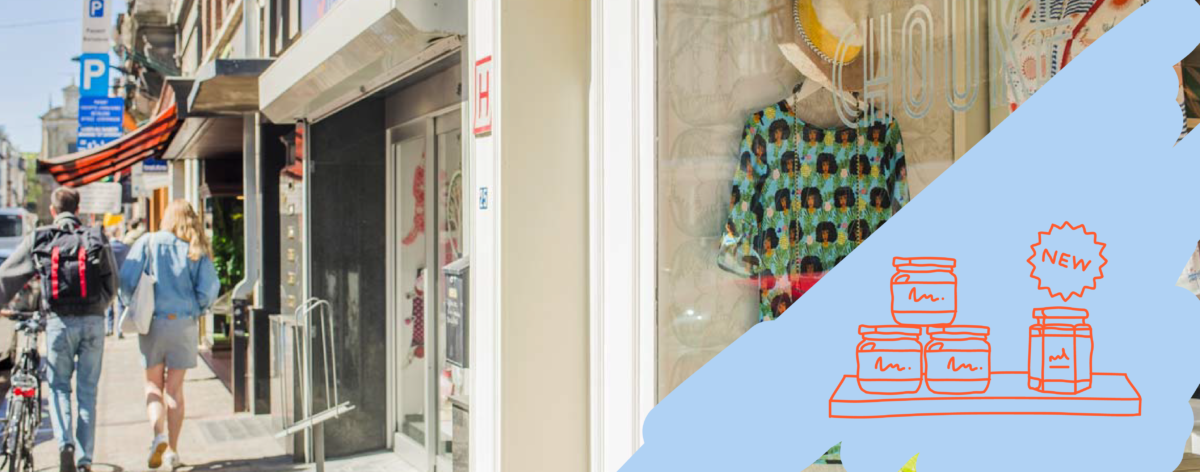
Retail: who stands behind the counter?
- Categories
-
Retail
-
Retail & Horeca
At the start of 2020, there were approximately 22,000 retail businesses in Brussels. The sector employs 61,000 full-time equivalents, i.e. approximately 9% of regional employment. Who’s behind these numbers? What is the profile of Brussels’ e-commerce entrepreneurs? What is their background? Are there more men or women? The answer in this study!
The retail trade in the Brussels–Capital Region is an increasingly better understood sector which is analysed on a regular basis. There have been many studies of the sector, a sign of academic and institutional interest and of a much broader societal interest.
In fact, while there are many studies of retail activity, little information is available about the profiles of the entrepreneurs who participate in this economy.
A survey of retailer profiles
To compensate for this shortcoming and complete its knowledge of the entrepreneurial retail fabric in Brussels, hub.brussels conducted a study based on six topics.
This survey was carried out in collaboration with IGEAT-ULB during the second half of 2019. These data are the result of extensive fieldwork carried out by the Data team of hub.brussels, which, defying all conditions, took up the challenge of personally soliciting more than 1,300 entrepreneurs and retailers.
The survey is intended to establish a socio-demographic profile of self-employed and non-franchised retailers in Brussels.
Covering topics including education, professional experience, nationality and language use, the survey enabled the collection of extensive data about entrepreneurs in the retail sector and to make or refine many observations.
One-third of retailers are women
Note that there are two times fewer women entrepreneur-retailers than male ones in Brussels.
Nevertheless, this should balance out over time since we are seeing a larger number of people with few years of experience coming into retail (i.e. normally new entrepreneurs) of which more are women than men.
Two-thirds of retailers are under 35
Brussels is different from the rest of the country in terms of the age of its entrepreneur-retailers. While one retailer out of two is under 35 in Belgium, over two entrepreneur-retailers out of three are younger than that in the Brussels-Capital Region.
This youth is also visible via other indicators, which describe the careers of the people surveyed. Thanks to an estimate of the age at which retailers enter the sector (as management or as employees), it appears that approximately 50% of respondents started their career in retail before they were 25 (including 20% before their twenties).
A quarter of retailers have fewer than five years of experience
With respect to the estimated number of years of experience, the survey shows that 10% of respondents have worked in retail for less than two years. This ratio increases to 25% when people working fewer than five years in the sector are taken into account.
A quarter of retailers have done post-secondary studies
Analysis of the careers of the entrepreneur-retailers surveyed indicates that over 75% finished their secondary school studies and that 25% of those went on to higher studies. Note that the higher the level of education of the respondents, the more useful they felt their studies were for their business.
A quarter of retailers speak two languages
The use of different languages with customers for business has been documented. In the sample, nearly 60% of entrepreneur-retailers only use one language with their customers, whereas 25% use two.
French is virtually a must give that all of the entrepreneur-retailers surveyed use it. Next come English, spoken by nearly a third of people surveyed and, to a lesser extent, Dutch and Arabic.
40% of retailers are foreign nationals
While the four languages listed are those which are primarily used by the entrepreneur-retailers, the sample identified over 30 languages used in exchanges with customers.
The languages are closely tied to the origin and nationality of the entrepreneur-retailers. In the Brussels sample surveyed, over 40% of respondents were foreign nationals and represented 51 different nationalities. However, as is the case for languages, while a degree of diversity is apparent, a few nationalities dominate: Moroccan (one non-Belgian entrepreneur-retailer out of five), French and Turkish (one non-Belgian out of ten).
Real diversity in profiles
While the study highlighted these overall findings, the analyses carried out at a finer level showed that Brussels’ entrepreneurial retail fabric is very diverse.
While some retail categories have specificities and while there are some logical regional aspects, the findings point to real diversity among entrepreneur-retailers.
It would appear to be imperative, first of all, to guarantee support services which are accessible to all, regardless of origin, educational level or age.
Demand for training
The study shows that vocational training and, especially, complementary training, is seen as more useful by the people surveyed. It is therefore necessary to raise the awareness of people interested in becoming entrepreneur-retailers about making the right choices with respect to their training to guarantee the success of their venture.
Tailored training for you
Do you want quick and effective training with quality coaches? Given the measures announced for retail outlets and hospitality establishments in Brussels, hub.brussels has set up a series of speed coaching sessions to quickly meet the needs of the retail and hospitality sectors to enable them to explore options and expand their horizons.